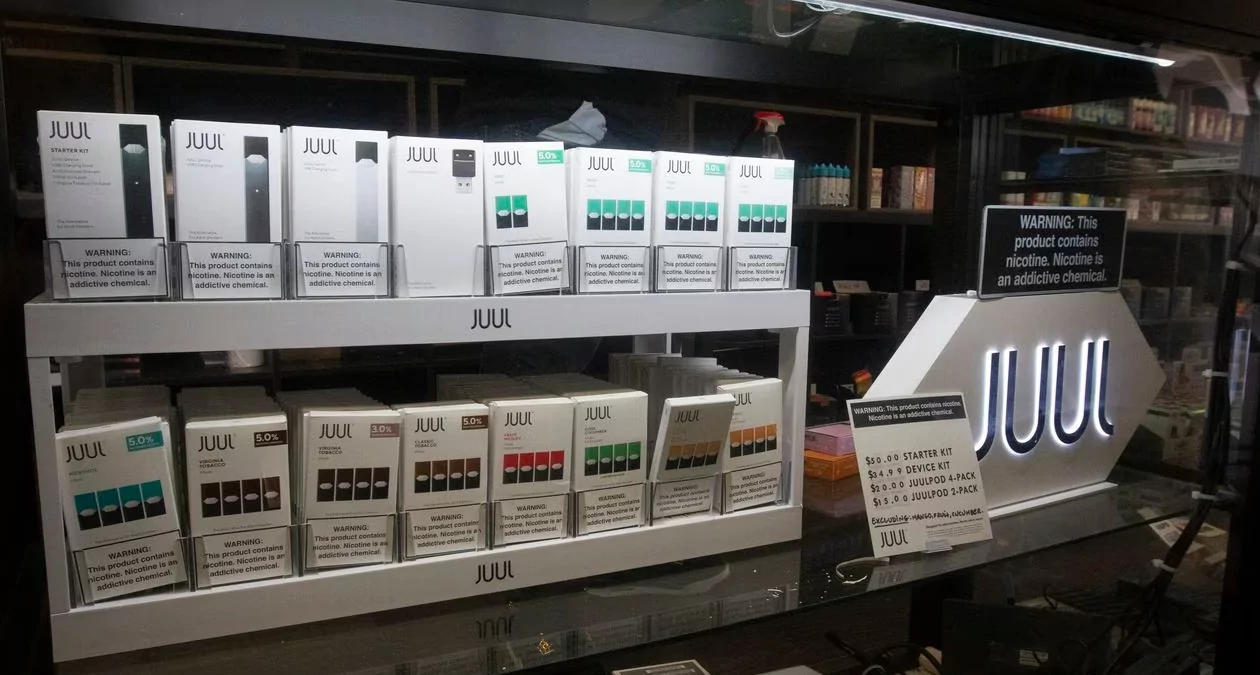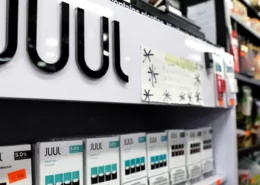Breaking Through Adversity – Juul Plans to Cut 30% of Jobs
E-cigarette manufacturer Juul has announced its plan to layoff around 400 employees, reduce its budget by 30% to 40%, and receive cash injections from early investors to stop bankruptcy preparation. The investment and restructure plan are designed to move the company forward, strengthen its financial base, and continue with the product development and scientific research while adhering to discussions with the US Food and Drug Administration. Recently, Juul has faced a plummet in valuation, dropping from $38 billion to $450 million as a result of disputes with the government regarding the sales of e-cigarettes. This decline in valuation was further exacerbated when an outbreak of e-cigarette-related lung disease occurred in the United States.

Juul, once known as the “Apple” of the e-cigarette industry, rose from an initial valuation of $0 to a $38 billion valuation in three years, and then plummeted to $450 million valuation in the same amount of time. At one point, the company was on the edge of bankruptcy, and now, even though it has received some assistance, it is still fighting for survival.
On November 10, Juul told its employees that the company had received cash injections from some of its early investors, which stopped the company’s bankruptcy preparation and has been undergoing cost-cutting measures. Juul management announced that the company plans to lay off about 400 employees and reduce its operating budget by 30% to 40%.
This investment transaction is the first part of a rescue plan being discussed with Juul’s two largest investors, Nick Pritzker, the heir to Hyatt Hotels, and California investor Riaz Valani. According to previous reports, Juul has been discussing the company’s survival issues with its two largest investors.
Due to disputes with the US federal regulatory agency over whether its products could be sold in the US market, Juul has been preparing for possible bankruptcy applications.
Read more: Juul is Preparing to File for Bankruptcy Due to Vaping
Juul received funding
Juul said that the investment and restructuring plan is a way to move forward. The company said the fundraising is intended to give Juul a stronger financial foundation to continue operations, discuss with the US Food and Drug Administration (FDA) on whether its products can continue to be sold in the US market, and continue its product development and scientific research.
The specific terms of the investment are unknown, but Juul said that other early investors may also participate. According to insiders, the second part of the rescue plan is currently under discussion and may cover recent legal liabilities.
Insiders revealed that in another transaction, the two board members of Juul refinanced a regular loan to Juul between $300 million and $500 million at the end of September.
Insiders said that Juul refinanced this debt because the previous loan terms required Juul to have a lot of cash on hand, and the company needed more cash.
The sky-high valuation that disappeared
In 2018, Juul, with its fashionable e-cigarettes, disrupted the tobacco market, quickly becoming a symbol of identity among young people. As of September 2018, Juul had a 72% market share of the US e-cigarette market, with sales reaching $2 billion that year.
What followed was a skyrocketing of Juul’s valuation. In July 2018, Juul’s valuation was only $16 billion, but it doubled in three months to reach $38 billion.
However, in late 2019, a strange e-cigarette pneumonia broke out in the US. In July, eight teenagers in Wisconsin exhibited severe lung disease, all of whom had vaped e-cigarettes prior to getting sick, and their X-rays were shockingly similar.
How did e-cigarette pneumonia occur? Why did it only break out on a large scale in the United States? Everyone blamed e-cigarettes for the epidemic. Overnight, the beloved e-cigarette among young people became a “harmful substance” in the eyes of legislators and parents.
In early 2020, the FDA announced new e-cigarette regulations in the US, banning most fruit-flavored e-cigarette pods, leaving only tobacco and menthol flavors. Five months later, the FDA added new rules, requiring all e-cigarette products, including pods, to undergo premarket approval and provide a comprehensive list of product ingredients and their effects on public health.
This was a disaster for Juul. Juul subsequently stopped selling fruit-flavored e-cigarettes in the US, stopped advertising, and was no longer one of the top e-cigarette brands used by young people.
Subsequently, its valuation was also slashed. At the end of 2018, it was worth $38 billion, shrinking to $16.4 billion in December 2019, declining to $10 billion in October 2020, and further shrinking to $450 million in July of this year.
- Guide to Quitting Vaping: Proven Strategies for Success - July 23, 2024
- TRPR and TPD UK Regulations for Vaping Devices and E-Liquids - July 23, 2024
- Guide to the New Tobacco and Vape Regulations in Romania - July 23, 2024
Related posts:
 Altria Plans to Acquire NJOY for $2.75 Billion
Altria Plans to Acquire NJOY for $2.75 Billion
 Juul is Preparing to File for Bankruptcy Due to Vaping Regulations
Juul is Preparing to File for Bankruptcy Due to Vaping Regulations
 Best Top 10 Disposable Vape Manufacturers in China You Need to Know
Best Top 10 Disposable Vape Manufacturers in China You Need to Know
 Altria Exchanges 35% Ownership of Juul for Intellectual Property
Altria Exchanges 35% Ownership of Juul for Intellectual Property
 The Truth About Vaping: Understanding the Facts and Statistics
The Truth About Vaping: Understanding the Facts and Statistics
 A Brief History of Vaping
A Brief History of Vaping


